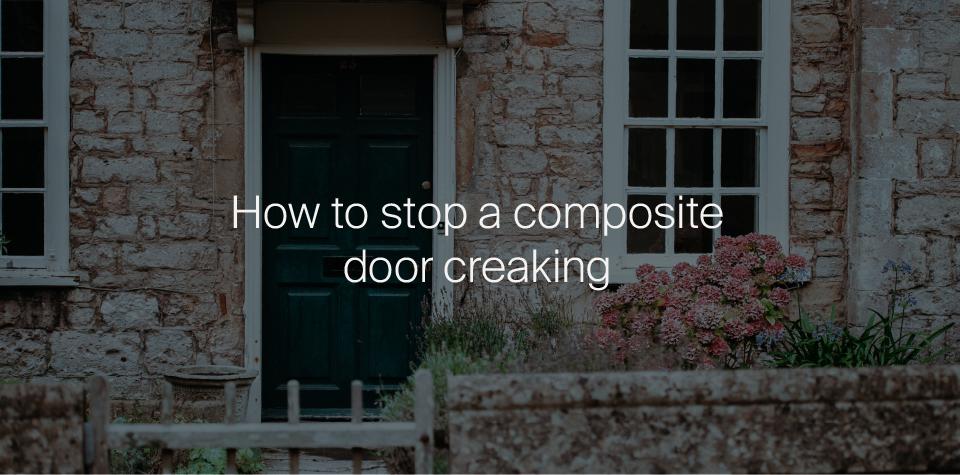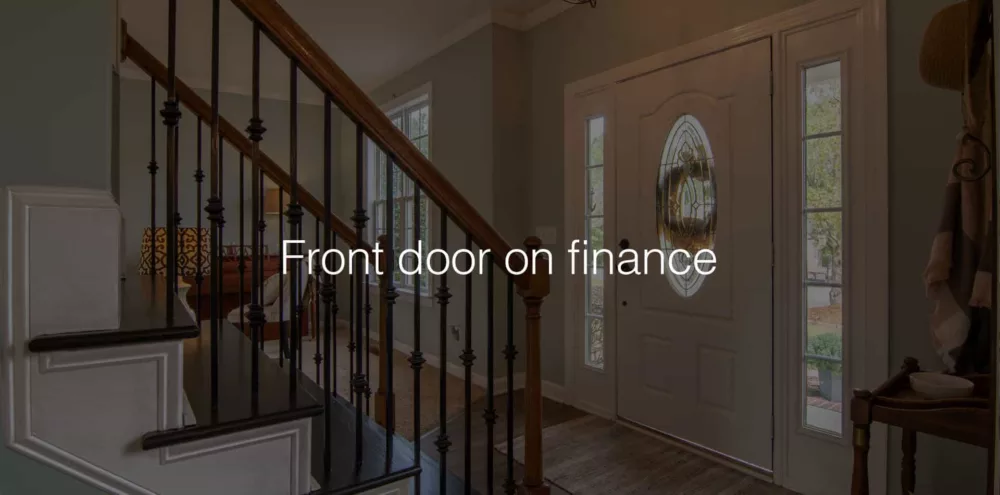How To Stop A Composite Door Creaking
Things that creak in the night: think cupboard opening by itself and a shiver runs down your spine. Think tree bending and willowing in the breeze outside - or, think composite door doing what composite doors do.
A creaking noise at night can be pretty scary until you realise what it is, and then it becomes just plain annoying. You can lock the cupboard and cut down the tree, but what will you do about your composite door?
Some would say the best way would be to get a new one - you can design and order online below:
What Makes My Composite Door Creak?
The warm summer sun shines down on everything, including your composite door.
The sun's effect is especially warming for south-facing and west-facing composite doors where the morning and lunchtime rays beat down and heat the unique combination of materials which amalgamate to form your durable, dependable front door.
When night falls, like a weary soldier resting his weary, creaking bones after a long hot day, the composite door settles for the night.
The expansion of the door's materials as a side-effect of the day's heat begins to contract due to the cooler outside air.
As the various materials used in a composite front door differ in density, they all expand and contract at different rates, causing the creepy creaking noise you hear at night as the amalgamation settles.
The intensity of the creaking noises may be more evident if you have a darker colour composite door, as darker-coloured doors absorb more sunlight and therefore creak more.
Although a creaking door can be pretty unnerving when you first hear it, your door isn't in pain, and the sound is no more hazardous than a midnight cacophony of crickets.
The expansion and contraction are not damaging your door, as its rugged core and reinforced surface skin protect it against a lot more than a bit of sun.
How Can I Stop My Composite Door from Creaking?
Due to the way, materials expand and contract in many composite doors, one way to stop or lessen the creak is by adjusting the door frame.
When your beautiful new door was installed, it probably came specially fitted by a professional installer inside a door frame of the perfect size, just as composite doors like ours always are.
Then, the creaking began, and it won't stop!
In this scenario, it's time to look at your frame.
The size of your door frame may be the source of your problem. The structure may have become too tight for the door, and this can cause it to creak.
Even though, when installed, the composite door frame was perfect, we've explained how composite doors expand or contract, and as this happens throughout its life, the structure may need adjusting.
If you notice your composite door cracking, it will confirm this problem. Adjust your frame before the cracks do more harm.
By making your composite door frame slightly more prominent, you may not have to worry about your midnight creak for too much longer.
My Door Isn't Creaking, But Why Does It Squeak?
A door that squeaks every time you open and closes it may not be as unsettling as a door that creaks at night, but it's undoubtedly more irritating. How do you go about stopping that squeaking sound?
A squeaking composite door is probably due to the door hinges rubbing against each other, but squeaky doors can also happen when the door hinges are incorrectly aligned.
Manufacturers of composite doors are not infallible either, and on certain (infrequent occasions), your composite door may have a manufacturing fault.
How Do I Stop My Composite Door Hinges from Squeaking?
You can solve this problem in composite doors by applying lubrication to the hinges using a mild engineering oil like 3-in-one or a silicone spray.
If possible, avoid multi-purpose products like WD-40, as they're not suitable lubricants.
These multi-purpose products dry out too soon, and your friction squeak will return, meaning you'll have to repeat the process.
You should follow these steps to lubricate the door hinges correctly:
- Choose a suitable lubricant.
- Take out the hinge pin.
- Lubricate both the hinge pin and the hinge plates.
- Return the hinge pin to its position.
- Allow the lubricant to work its way into the hinge correctly.
If your composite front door hinges aren't correctly aligned, you must tighten any loose hinges. If they're already tight, a hinge or hinges may require replacement.
FAQs
What else should I do monthly to care for my composite doors properly?
With composite doors worth a lot of money, cleaning them starts with wiping down any stainless steel, wiping the frame and the door panels, cleaning the glass with a reliable glass cleaner, removing any stains using a specialist uPVC cleaner and wiping over any non-steel handles with soapy water and a soft cloth.
What can I do to maintain the working parts of my composite doors?
Lubricate your composite door's hinges and hardware with light engineering oil and remove excess oil with a paper towel. Lubricate the locking mechanism with a Teflon lubricant.
Don't use oil or graphite powder, as they can cause lock damage. Check the weather seals are positioned well and slide any out of position back into their grooves.
Conclusion
If your door is creaking or squeaking, you must take whatever steps to fix the problem before you find your composite door cracking. Modern composite doors are better than wood doors, evidenced by their durability and security features. As such, it's essential to take the time to care for them properly.
Take a look at our website to find more tips to maintain the gorgeous glam of your composite door.



